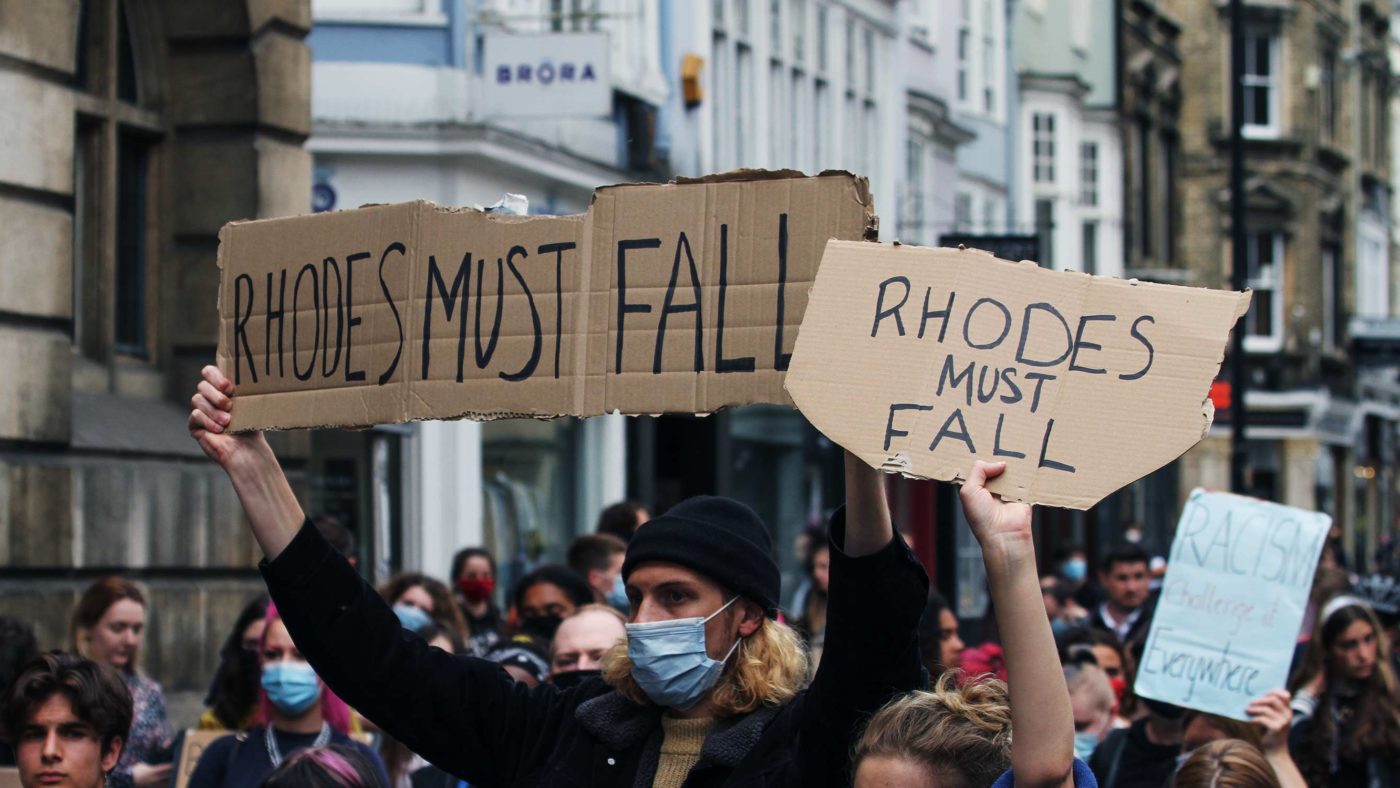In 1984 George Orwell wrote, ‘Who controls the past controls the future. Who controls the present controls the past.’ The idea of controlling the past can be traced back long before the emergence of Soviet Russia or Nazi Germany. It is the backdrop to boastful inscriptions on the walls of ancient Egyptian temples at Luxor.
Today this idea has taken a new form. A way of reading the past is being imposed in universities, schools and wider society that is justified not by its historical accuracy but by its political message. The adherents of so-called Critical Race Theory (CRT) have no sense that the task of the historian is to expound the evidence, rather than to indulge in moralising jargon. They have no sense that it is important to engage in argument, rather than to impose one’s views. They have no sense that the dogma they are spreading is not taken seriously by very many historians. Or rather, it does need to be taken seriously by its opponents, for it is a dangerously simplistic way of explaining both the past and the present.
History Reclaimed is a new website that challenges the increasingly dominant dogma of the Theorists, and demands proper debate about the distorted view of history that lies at the heart of the new thinking. History Reclaimed supports the art of writing history as it has been written ever since the time of Herodotus in ancient Greece: collecting the evidence and assessing it before spinning any general theories about the nature of human development.
Interestingly, Karl Marx understood perfectly well the need to accumulate large amounts of data before moulding the arguments of Das Kapital. The days he spent in the imposing Reading Room of the British Museum were given over to serious study, as even those of us who reject his conclusions have to concede. By comparison, CRT is lightweight, imprecise in its use of terms such as ‘capitalism’, ‘imperialism’ and ‘colonialism’, and much more concerned with righting supposed wrongs in the past than in writing authoritatively about the experience of our ancestors.
At the core of the ideas that we are challenging is the notion that history has been moulded by the racism of white people towards black people. Racism is seen as an invention of white people in western Europe who sought to create worldwide empires through the brutal exploitation of the labour of black Africans. These Africans were transported in vast numbers across the Atlantic from the early sixteenth century right up to the nineteenth century, and no one can deny that their treatment was at best callous and at worst murderous. It is possible that as many as 12.5 million slaves were imported to the Americas, the largest number towards the sugar plantations of Brazil, others towards similar plantations producing sugar, cotton and tobacco in the Caribbean islands and in what became the United States.
In this interpretation, the oppression of African slaves was not merely based on pseudo-scientific ideas that different races possess different levels of intelligence. It is also argued that the Industrial Revolution that took off in 18th-century Britain was funded by the profits of the sugar industry, which depended on slave labour. The fact that there were more significant sources of capital in the agricultural transformations taking place in Britain is conveniently ignored. So too is the fact that the main source of slaves was African kingdoms that willingly sold their war captives.
Worse than these errors is the insistence that white prejudice has, over the centuries, embedded racism so deeply within the society of western European states, as well as the USA, that an ineradicable ‘systemic’ racism pervades every aspect of modern life. The lesson is that ‘white privilege’ needs to be challenged, but it is not entirely clear whether there is much point in white people doing that themselves. Even their anti-racism is bound up with the racism that comes with one’s mother’s milk, a concept known mysteriously as ‘white fragility’.
This is not just an argument about the past. It reaches beyond the question of who deserves to be commemorated by a statue. The Scottish Government has announced that it will address ‘white privilege’ in the school curriculum; race will be presented as a ‘system’ that ‘serves to enable capitalism’, and the concept of race was supposedly invented ‘to justify the murder, exploitation and brutalisation of the people, lands and resources of the Global South for centuries’. And the Tate Gallery recently issued a warning that the great British painter Turner should not be ‘idolised’, since he once briefly owned a single share in a Jamaican sugar plantation that used slave labour (and actually supported abolition). Yet the Tate Gallery itself was created out of the profits of a sugar empire that originally relied on slave labour.
History Reclaimed is aimed at journalists, teachers, academics, politicians and members of the general public mystified by the claims of ‘Critical Theory’. It will publish briefings and articles that will present a more balanced view of the past and will give a voice to those who feel that what was once the mainstream view of the past is falling victim to the intolerance, distortions and dogmatism of cancel culture.
Click here to subscribe to our daily briefing – the best pieces from CapX and across the web.
CapX depends on the generosity of its readers. If you value what we do, please consider making a donation.


